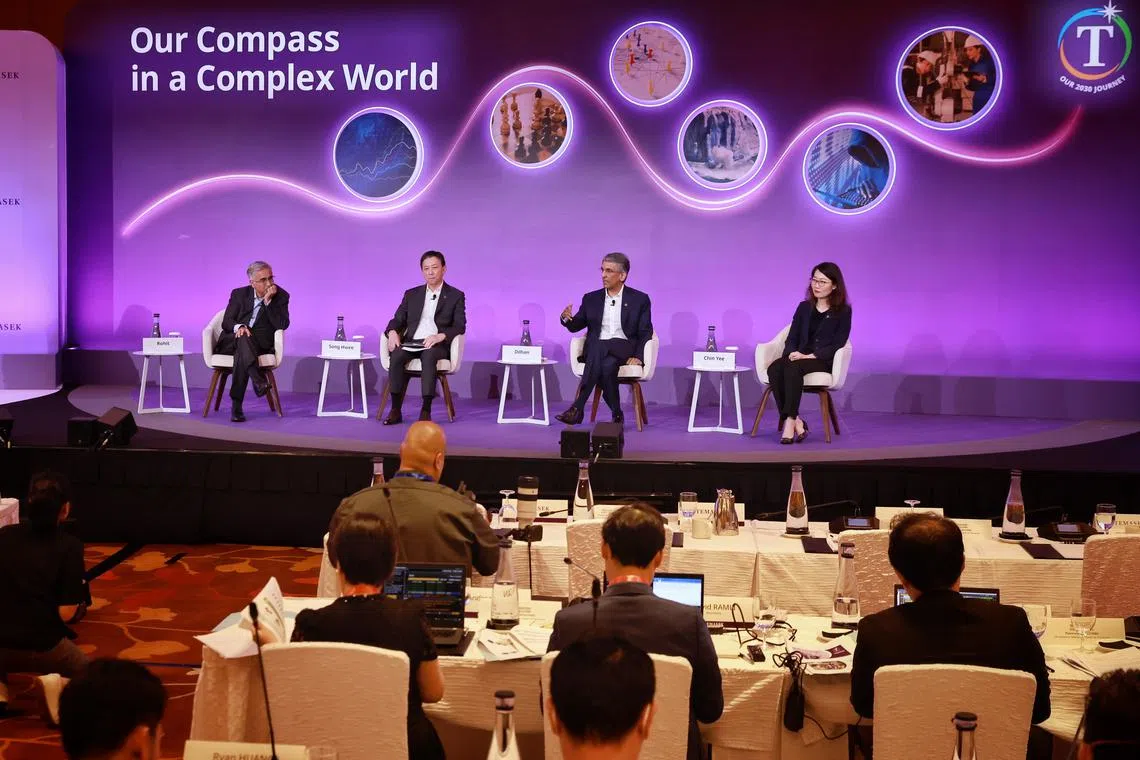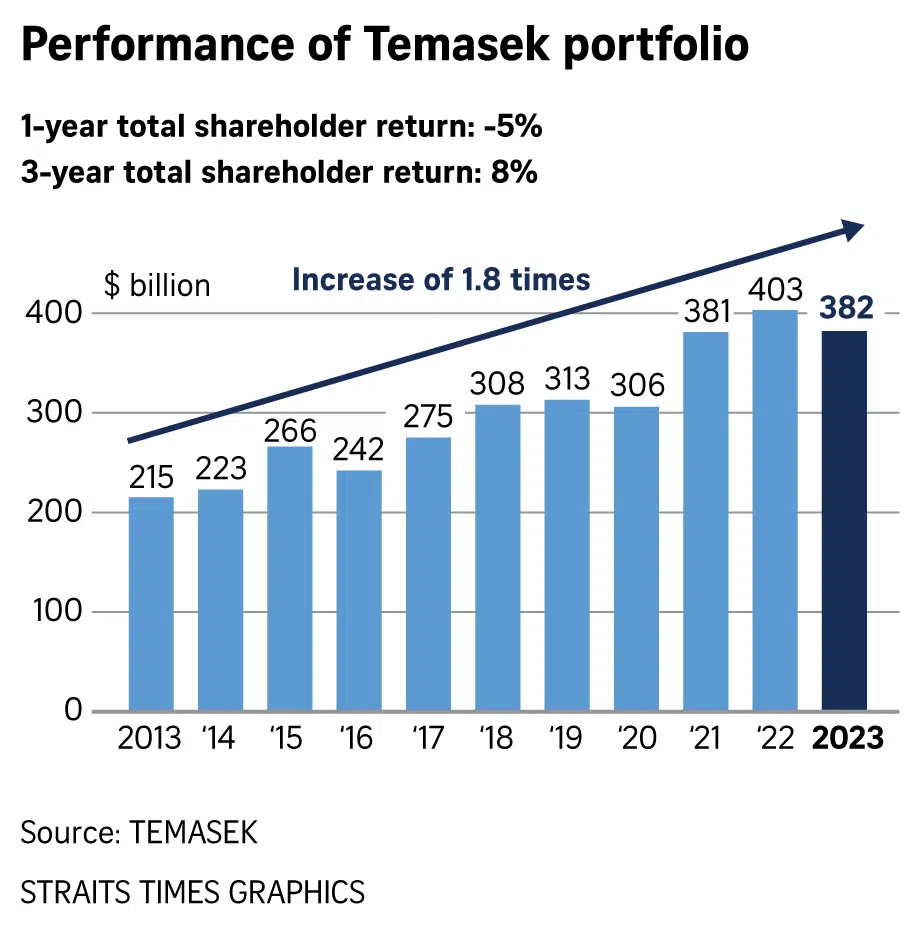FTX blow-up is ‘an aberration’ in early stage investments: Temasek CEO
Sign up now: Get ST's newsletters delivered to your inbox

(From left) Temasek’s chief investment officer Rohit Sipahimalani, deputy chief executive Chia Song Hwee, executive director and CEO Dilhan Pillay and chief financial officer Png Chin Yee at the annual Temasek Review on July 11.
ST PHOTO: JASON QUAH
SINGAPORE - The blow-up of disgraced American cryptocurrency exchange FTX
In early stage investing, one has to accept the binary outcome of the investment, said Mr Dilhan Pillay, who is also Temasek’s executive director.
He said that in the case of FTX, which resulted in the group writing off its US$275 million (S$369 million) bet on the firm
Bankman-Fried is accused of conspiracy to commit mail and wire fraud
Temasek said in late May that it would cut the pay of its investment team and senior management
Speaking at the Singapore state investor’s annual review
When asked why no one was let go as a result of Temasek’s poor investment in FTX, Mr Pillay said: “If you were to start to punish people beyond what we’ve done, who would want to be an investor?”
He added that as an investor, one takes calibrated risks, and “as long as you’ve done the work required to make the investment, the committee approves it, it goes forward”.
However, should an investment turn sour and negatively impact Temasek’s reputation, more punitive actions such as pay cuts could be taken, Mr Pillay said.
This is “to remind ourselves that every time we do something, the issue is not just the financial risk associated with the investment, it’s the reputational risk associated with us, and we take that very seriously”, he said.
Mr Pillay noted that most of Temasek’s investments have done well and very few have done very badly, like FTX. Others had started off performing well but became progressively worse, either due to external market conditions or internal conditions.
The state investor had held a 1.5 per cent stake in FTX and the investment constituted 0.09 per cent of its $403 billion portfolio as at end-March 2022.
The group was one of the exchange’s largest external investors, alongside Sequoia Capital and Canada’s Ontario Teachers’ Pension Plan. In November 2022, Sequoia wrote down the full value of its US$214 million investment in FTX.
Mr Rohit Sipahimalani, Temasek’s chief investment officer, said at the briefing that “FTX clearly was a situation we’re all disappointed with”.
He said Temasek caps the exposure to early stage companies at 6 per cent of its total portfolio
“We invested in FTX because at that time, it seemed like a company having good technology, it was rapidly gaining market share and all the checks with regulators suggested that they were very regulatory compliant and wanted to get licensed everywhere, so all that led us to invest in that company,” said Mr Sipahimalani.
He added that lessons have been learnt and that the group has enhanced its due diligence processes in the hopes of avoiding such situations in future, while “recognising that fraud is something that is difficult to protect against completely”.
Looking ahead, the group has built what it calls the “Temasek operating system” as part of its 2030 strategy.
This refers to a suite of specialised, next-generation capabilities in five areas – artificial intelligence (AI), blockchain, cyber security, data and digital, and sustainable solutions.
Temasek deputy chief executive Chia Song Hwee said these capabilities will be essential for the future and could differentiate the group as a value-adding investor and shareholder.
For now though, the group is trying to understand more about the business-to-business applications of AI and its investment in this area is “still a very small portion” of the portfolio, he said.
Mr Sipahimalani said the group will continue to invest in established tech companies as it is clear they will be winners, but he added that Temasek is less excited about investing directly in some of the start-ups for now as their revenue models are unclear and valuations are high.




